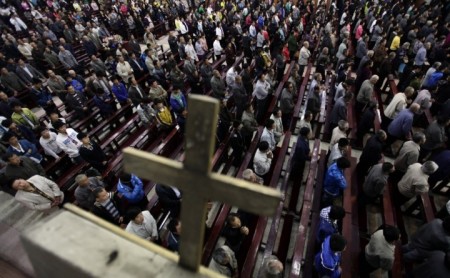China shuts down popular Christian website amid crackdown on religious groups

The latest victim of the Chinese Communist Party’s ongoing crackdown against Christianity in cyberspace is a well-known Christian website which has disappeared after serving believers for about 21 years, according to a report.
The people behind the popular Christian website, “Jona Home,” have put a notice on the Home page, which reads, “Due to reasons known to everyone, from now on our site can no longer serve brothers and sisters in Christ. Thanks to all for your company and support in the past 21 years!” U.S.-based persecution watchdog International Christian Concern said.
The notice further reads, “The disappearance of a website is merely a disappearance of a website, it does not carry any meaning. Except that the website link can no longer be opened, there is nothing else which stopped at that moment; Need not to be concerned, and just keep walking.”
A new legislation, known as Administrative Measures for Internet Religious Information Services, was enacted on March 1, Bitter Winter, a publication produced by the Center for Studies on New Religion which covers human rights issues in China, reported earlier.
The law mandates an “Internet Religious Information Service License” for any religious group that wants to disseminate religious content on the internet. But it says only “legally established” organizations can do so, which practically means only groups that are part of the five authorized religions in China can use the internet to distribute religious content.
Open Doors USA, which covers persecution in over 60 countries, estimates that China has more than 97 million Christians, many of whom worship in unregistered or so-called “illegal” underground churches.
The five state-sanctioned religious groups in China are the Buddhist Association of China, the Chinese Taoist Association, the Islamic Association of China, the Protestant Three-Self Patriotic Movement and the Chinese Patriotic Catholic Association.
Even the organizations within the five authorized religions are subject to surveillance and limitations, Bitter Winter reported.
As per the new law: “[T]hey can broadcast sermons and lessons, but these would be checked by the authorities for their ‘Sinicized’ content, making sure they promote socialist values and support the party, and are not intended as proselytization tools. Religious universities and colleges may disseminate content via the internet only to their students. Any attempt to spread religious content to minors or ‘induce minors to believe in religion’ will lead to the termination of the license.”
Without the license, it will be severely prohibited to share images or comments on “religious ceremonies such as worshiping Buddha, burning incense, taking ordination, chanting, worship, mass and baptisms.”
The law followed dictates by President Xi Jinping that prohibitions on the use of the internet to “advertise” religion were not enough to prevent “religious propaganda.”
In 2018, the Chinese government banned the sale of Bibles at online bookstores across the country to comply with a “white paper” that dictated compliance with the “core values of socialism.”
Australia's ABC News reported at the time that copies of the Gospels had been removed from online retailers following the release of a regime document titled “China’s Policies and Practices on Protecting Freedom of Religious Belief.”
The white paper declared that Chinese faith communities “should adhere to the direction of localizing the religion, practice the core values of socialism, develop and expand the fine Chinese tradition and actively explore the religious thought which accords with China's national circumstances.”





















